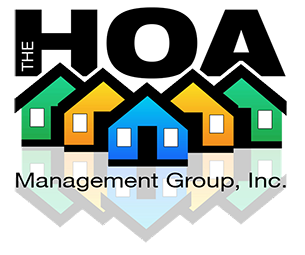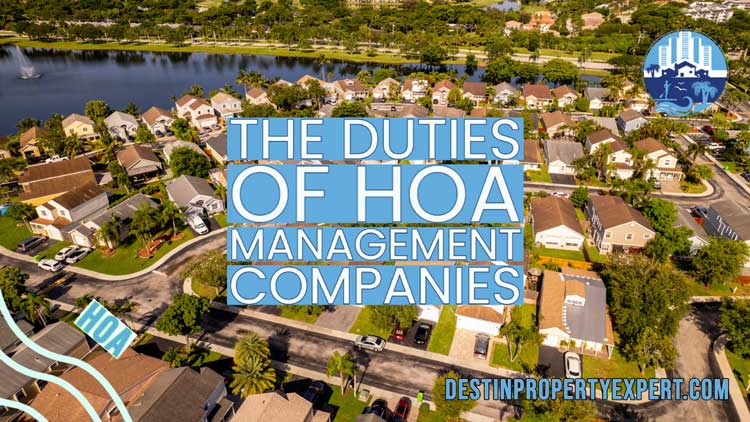From Financials to Upkeep: Understanding the Art of HOA Management for Area Organizations
Handling a community organization requires a delicate balance between financial responsibilities, reliable interaction, and reliable maintenance procedures. From looking after spending plans and financial declarations to working with upkeep tasks and enforcing rules and guidelines, HOA management can be an intricate art that demands a diverse set of abilities. In this discussion, we will check out the numerous aspects of HOA administration, from the intricacies of financial monitoring to the importance of maintaining a well-functioning area. By delving right into these crucial areas, we intend to give important understandings and strategies for mastering the art of HOA monitoring, leaving you geared up with the understanding and devices needed to navigate the difficulties that may occur within your neighborhood organization.
Understanding Financial Responsibilities
What are the crucial financial duties that area associations require to recognize and manage effectively? Community organizations play a crucial role in taking care of the funds of their communities. hoa management san antonio. To ensure the economic health of the association, several essential obligations should be recognized and handled effectively
First and primary, area associations have to establish and preserve an extensive budget. This involves properly approximating expenses and earnings sources, such as regular monthly fees, unique analyses, and rental earnings. A well-planned spending plan allows organizations to assign funds for necessary costs, such as repair and maintenance, insurance policy costs, and reserve funds for future resources tasks.
An additional crucial monetary responsibility is the collection of assessments and charges. Community associations need to make certain prompt and effective collection of these charges to cover operational expenditures and maintain the economic security of the organization. This includes executing a clear and clear repayment policy, dealing with misbehaviors immediately, and applying any kind of required legal actions.
In addition, area organizations should maintain precise economic documents and prepare regular financial statements. These declarations give a clear photo of the organization's economic health and wellness, including revenue, expenditures, and gets. Routine monetary coverage enables board members and home owners to track the association's economic performance and make educated decisions concerning budgeting and spending.
Last but not least, area organizations should follow all suitable monetary laws and tax needs. This consists of declaring tax returns, keeping correct documents, and adhering to any lawful obligations associated with economic administration.
Effective Interaction and Collaboration
Efficient communication and collaboration are essential for effective HOA monitoring and fostering a cohesive neighborhood. Area organizations rely upon effective interaction to disseminate essential info, address worries, and ensure transparency. A clear and regular line of interaction between the HOA board, residents, and residential property administration is crucial for a well-functioning neighborhood.
One means to promote effective interaction is via normal e-newsletters or emails that offer updates on area occasions, jobs, and crucial statements. This allows locals to remain educated and participated in the area. Additionally, developing open lines of interaction through neighborhood forums or city center meetings can supply a system for citizens to articulate their point of views, ask inquiries, and add to decision-making procedures.
Collaboration is similarly essential in HOA monitoring. Urging cooperation amongst board participants, boards, and residents cultivates a feeling of possession and shared duty. By including citizens in the decision-making process and actively seeking their input, the neighborhood association can create a more comprehensive and harmonious setting.
To promote reliable cooperation, HOA administration ought to develop clear objectives and goals, delegate responsibilities, and encourage synergy. Normal conferences, both official and informal, offer an opportunity for stakeholders to talk about ideas, address problems, and work towards usual goals. By cultivating a collaborative setting, community associations can harness the varied skills, expertise, and point of views of their locals to drive favorable modification and enhance community living.
Enhancing Maintenance Operations
Simplifying maintenance procedures is crucial for cost-effective and effective HOA management. By executing efficient approaches, neighborhood organizations can guarantee that upkeep tasks are executed smoothly and in a prompt manner, decreasing disruptions and taking full advantage of resident satisfaction.

Additionally, making use of technology can considerably enhance maintenance procedures. Implementing an electronic upkeep monitoring system (CMMS) enables associations to track job orders, routine precautionary upkeep, and maintain an organized record of upkeep activities. This not just boosts efficiency however likewise provides a transparent and liable system for both citizens and monitoring.
Furthermore, contracting out particular maintenance jobs can additionally streamline operations. By employing specialized service providers for tasks such as swimming pool maintenance or landscaping, associations can guarantee that these jobs are managed by specialists with the needed know-how, releasing up inner sources to concentrate on various other facets of HOA monitoring.
Focusing On Rules and Regulations
To ensure orderly and reliable area living, focusing on and applying laws and regulations is important for effective HOA management. hoa management san antonio. Community organizations rely upon a set of standards to secure and preserve an unified setting home values. By plainly specifying and prioritizing policies and rules, HOA monitoring can make sure that citizens understand their duties and expectations
Among the very first steps in prioritizing laws and policies is to determine this page those that are most important for the area's wellness. This may include carrying out a thorough testimonial of the existing guidelines and rules and recognizing any gaps or locations that need enhancement. It is vital to include area members in this procedure to ensure their buy-in and to attend to any kind of issues or recommendations they might have.
Once the most vital policies and regulations have been recognized, HOA management need to ensure that they are successfully communicated to locals. This can be done via various ways, such as e-newsletters, e-mails, community conferences, and posting notices alike locations. Consistent and clear interaction is essential to guarantee that citizens understand the guidelines and guidelines and recognize the consequences of non-compliance.
Enforcement of policies and laws is equally essential in maintaining a well-functioning community. HOA administration need to develop a regular and reasonable enforcement procedure, which might include cautions, penalties, and various other proper measures. hoa management san antonio. It is necessary to strike a balance between implementing the regulations and policies and preserving positive relationships with residents
Navigating Legal and Compliance Issues
Navigating lawful and conformity concerns is critical for HOA monitoring to make certain adherence to legislations and guidelines. Community organizations have to run within the bounds of the regulation to keep the trust fund and self-confidence of house owners and stakeholders. Failure to follow legal requirements can result in lawful conflicts, fines, and damages to the organization's online reputation.
To browse these problems efficiently, HOA management need to stay updated on government, state, and neighborhood legislations that govern area associations. This includes recognizing regulations associated to fair real estate, employment, taxes, and property administration. Conformity with these laws involves carrying out plans and procedures that shield the rights of house owners and ensure openness in functional and financial matters.
Along with legal obligations, HOA monitoring must likewise abide by the organization's governing papers, such as the laws, agreements, constraints, and resource problems (CC&R s) These files detail the regulations and regulations that govern the area and may include provisions relating to property maintenance, architectural guidelines, and conflict resolution processes.

Verdict
In conclusion, mastering the art of HOA administration for neighborhood organizations calls for an extensive understanding of monetary obligations, efficient interaction and partnership, simplifying upkeep procedures, prioritizing policies and guidelines, and navigating legal and conformity issues. By effectively applying these methods, community organizations can guarantee the smooth functioning and overall well-being of their communities.
By diving into these essential areas, we intend to give beneficial understandings and techniques for mastering the art of HOA monitoring, leaving you furnished with the understanding and tools needed to browse the difficulties that might arise within your neighborhood organization.
Community organizations play an essential function in Full Article taking care of the funds of their communities. Community associations should ensure prompt and effective collection of these fees to cover operational expenditures and preserve the economic security of the association. By promoting a collaborative atmosphere, community associations can harness the varied skills, expertise, and perspectives of their citizens to drive positive change and improve community living.
To navigate these concerns effectively, HOA administration should stay upgraded on government, state, and local legislations that control community associations.